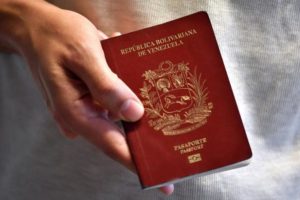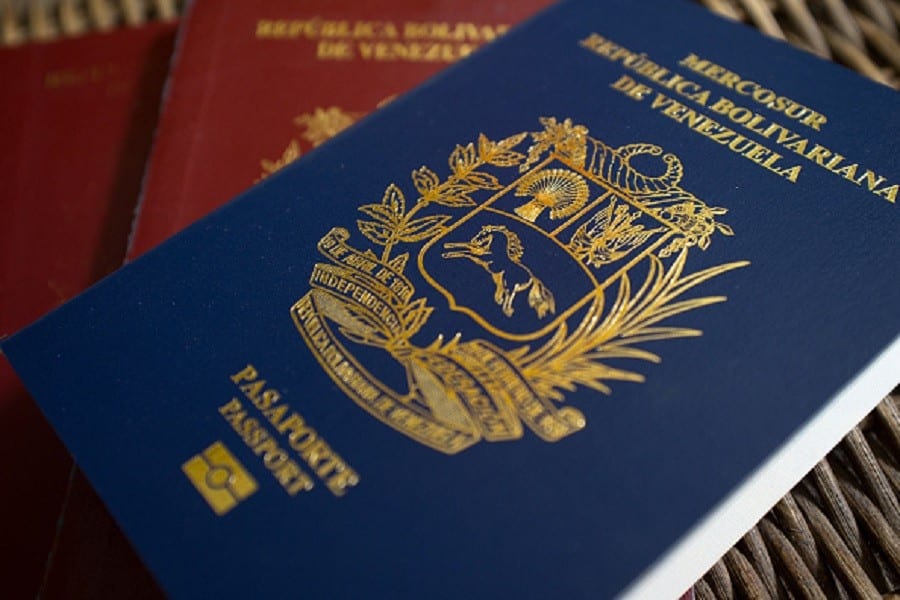
Last week, the bolivar was devalued at once by 96%. If in the beginning of September it was possible to get a quarter of a million bolivars for the American dollar, then after the devaluation, the price of the American currency increased 24-fold and matched with the rate on the black market. The Venezuelan government hopes to put an end to social depression, in which Maduro, in his populist statements, blames the economic war unleashed by the imperialists against the Bolivarian revolution and leftist regimes. Almost every day, Nicolás Maduro appeals to the Venezuelan people from the TV screens, assuring that he has his own unique revolutionary form, which will soon lead the country to feelings.
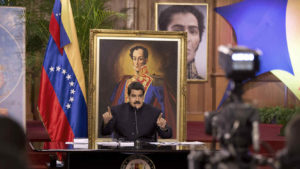
Since September 14, the Venezuelan leader has started a program of recovery, growth and economic prosperity with the devaluation of the national currency. Henceforth in Venezuela in monetary circulation is not the usual bolivar, but a sovereign one. From the former, it differs by the number of zeros: in a new currency, there are five less than the old one. Cheerful Venezuelans joke that henceforth bolivars will probably be worn in purses, and not carried in a trolley. As the government assures, the new bolivars are “tied” to the petro-cash currency, which in turn refers, as one might guess from the title, to oil prices. To date, one petro costs 60 sovereign bolivars. In addition to devaluation, the program consists of a number of measures: raising taxes, increasing gasoline prices categories of drivers and others. The Venezuelan leader seems to be full of hope or skillfully pretending that he hopes to succeed, each time emphasizing that Venezuela is waiting for a new economic miracle.
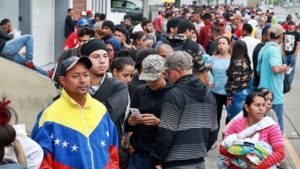
It should be noted that the fact that the new government program will lead to further hunger, deprivation, inflation, deteriorating living standards of citizens and the situation in the economy, the well-known economists also agree. According to Henkel Garcia, the director of the influential metropolitan consulting company “Econométrica”, this plan, proposed for the restoration of the economy by the current Venezuelan government, can be called a combination of chaotic, ill-conceived and contradictory measures and ideas. The time will tell what the consequences will be, but the majority of the world’s leading economists and analysts agree that there is no need to count on the “bright future” promised by Nicolás Maduro in the coming years.
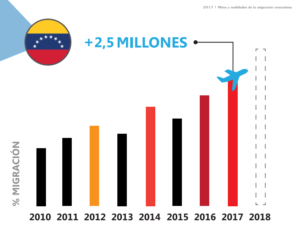
Venezuelan President Nicolás Maduro once in one of his statements called his fellow citizens leaving the rich oil “vein”, slaves and beggars abandoning their homeland for the sake of foreign “gingerbread”. However, “gingerbread” in a foreign country, Venezuelans have not been offered for a long time.
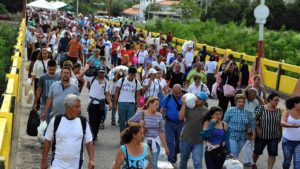
As early as August, the authorities of Ecuador and Peru, which received more than 20,000 Venezuelan refugees within just one week, announced that they would start using Venezuelan citizens from now on only by passports, and not by ordinary identity cards, like this was before. It is worth noting that the passport is not available to all residents of Venezuela, and its processing as usual could be delayed for many months.
